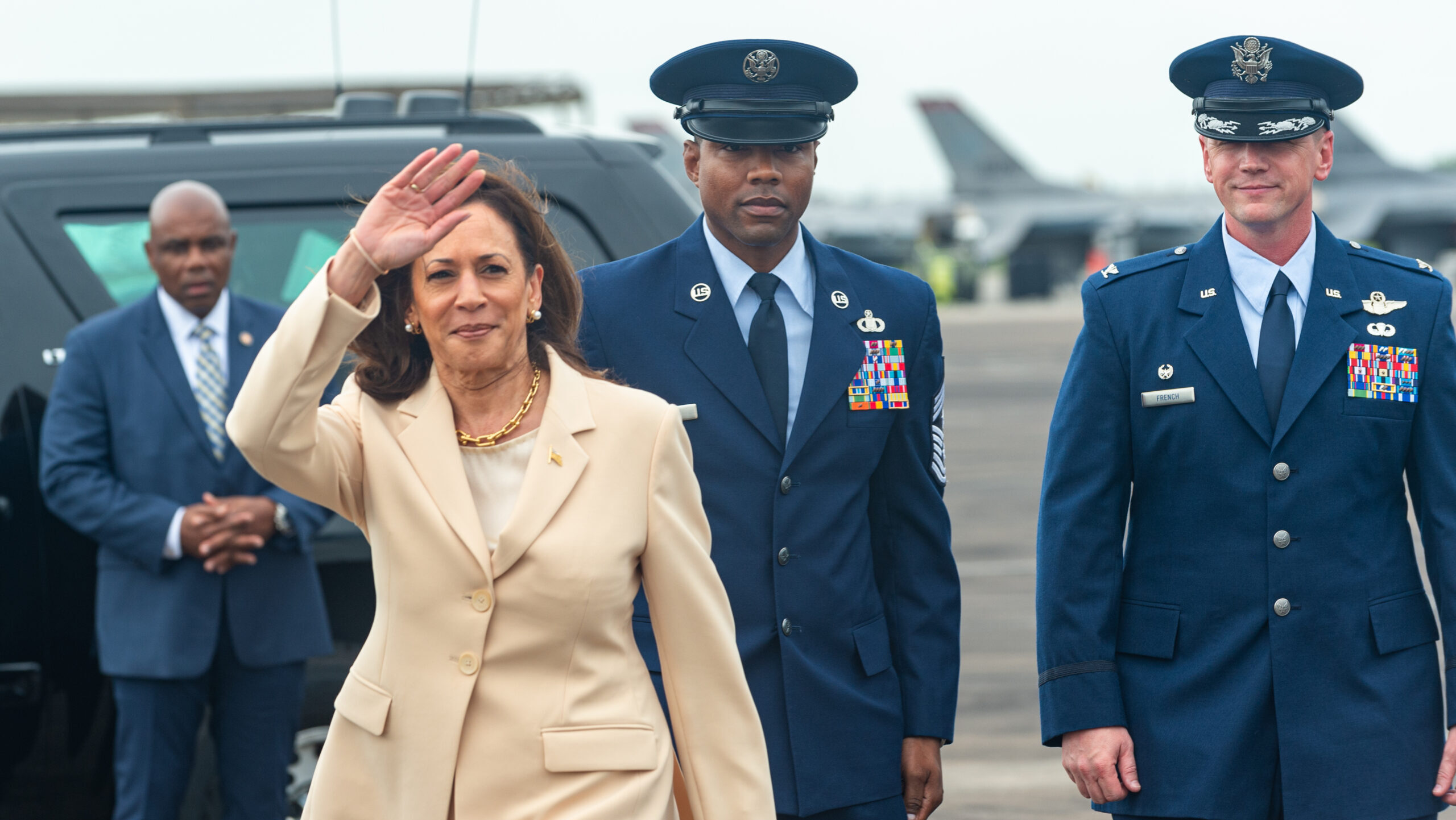
Vice President Kamala Harris waves after arriving at Ellington Field JRB and being greeted by Chief Master Sergeant Bennie Bellvin, 147th Attack Wing Command Chief and Colonel Bif French, 147th Attack Wing Commander, July 24, 2024. (U.S. Air National Guard photo by Tech. Sgt. Stacy Cooper)
WASHINGTON — Though the Defense Department and the Intelligence Community have long identified China as America’s number one geopolitical challenge, when Democratic presidential nominee Kamala Harris was asked who America’s top “adversary” is, she said one “obvious” answer, right now, sits 5,600 miles west of Beijing.
“I think there’s an obvious one in mind, which is Iran,” Harris said during an excerpt of a “60 Minutes” interview. “Iran has American blood on their hands, okay? This attack on Israel, 200 ballistic missiles, what we need to do to ensure that Iran never achieves the ability to be a nuclear power, that is one of my highest priorities.”
After the vice president declined to answer a “hypothetical” about how the US would respond to evidence Iran was pursuing a nuclear weapon, “60 Minutes” interviewer Bill Whitaker asked a follow-up question: “What about China?”
In her response, Harris framed America’s relationship with the Pacific power in economic terms, saying the US “must win the competition for the 21st century with China.”
“We must be able to compete and win. We should not seek conflict, but we have to understand that there are parameters in which we much operate that include ensuring, for example, that we protect American business interests,” she said.
Asked if the US would intervene should China invade Taiwan, Harris declined to get into that hypothetical as well and reiterated the Biden administration’s adherence to the one China policy, “but that includes supporting Taiwan’s ability to defend itself, including what we need to do to ensure freedom of the Taiwan Strait.”
Harris’s assesment of Iran as the number one adversary doesn’t quite match official statements from the Pentagon and IC, which put China as far and away the most pressing geopolitical challenge — impetus for the DoD’s years-long, stop-and-start “pivot to the Pacific” effort. For instance, in the Biden administration’s official National Defense Strategy, Bejing is described as America’s “pacing challenge,” compared to Russia’s “acute threat.” Iran is typically relegated to a group of dangerous “regional” actors.
The IC’s 2024 Worldwide Threat Assessment [PDF] likewise first addresses China as having the “capability to directly compete” with the US to challenge the global order and Russia as a “threat” to that same order. Iran, it says, threatens US “interests, allies, and influence in the Middle East and intends to entrench its emergent status as a regional power […].”
But analyst Becca Wasser told Breaking Defense that observers shouldn’t read too much into Harris’s answer as forecasting a change in priorities in a potential Harris administration, as much as a “recognition of what the current challenge is.”
“Maybe that answer doesn’t comport with what the current National Defense Strategy says, but there is the reality of acknowledging the ways in which Iran has, time and time again, complicated US efforts to focus elsewhere,” said Wasser, a senior fellow for the Defense Program at the Center for New American Security.
The “60 Minutes” interview was broadcast amid a devastating conflict in the Middle East between Israel and Iran-backed proxies in the region, including Hamas in Gaza and Hezbollah in Lebanon, and just a week after Iran launched 180 ballistic missiles at Israel. Millions of civilians are caught in the middle, and it’s a conflict that perpetually threatens to spiral into a wider regional war that could draw in American forces.
Wasser said she wouldn’t have necessarily put Iran at the top of her list of adversaries, but said she didn’t believe Harris was “wrong” that Iran is “an obvious answer for one of the potential threats that faces America today and could face America tomorrow.”
“If you looking at the current threat environment, the current world in which [we] stand, Iran does stand out as truly one of the most relevant adversaries that is actually causing problems for the United States at this very moment,” she said. “You hear a lot about China as a DoD ‘pacing’ challenge, but that is a long-term challenge. And so here I think we have to sort of view her answer in different time frames.”
Wasser also suggested it’s possible Harris may have taken issue with Whitaker’s use of the word “adversary” in the original question, as the Biden administration, including the Pentagon, has attempted to frame American competition with China as just that — a competition, not a conflict.
“It is a US-China strategic competition; war with China is not inevitable,” Wasser said, noting that it’s an eventuality the Biden administration has been trying to avoid “at all costs.”
An Army helicopter takes on new roles, including as a FLRAA testbed
The role of rotary wing aircraft in a 21st century security environment include operations in multi-domain operations and Joint All Domain Command and Control.
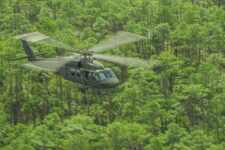
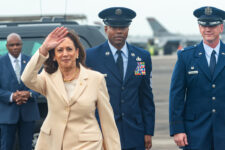

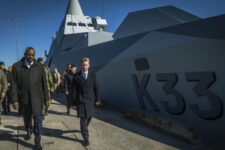
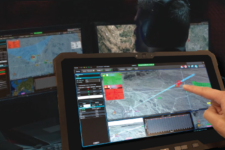
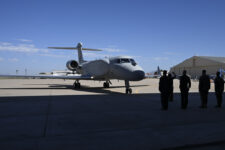



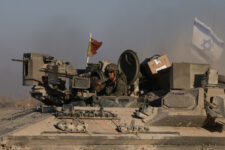

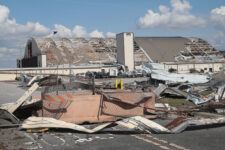


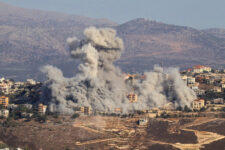

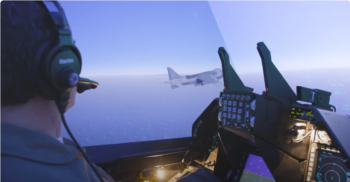
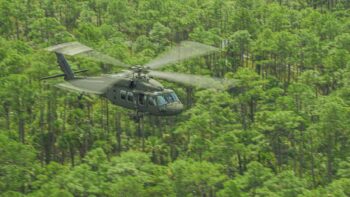
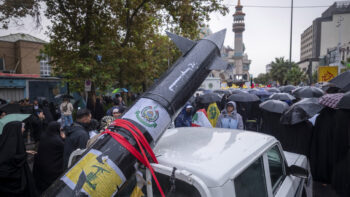
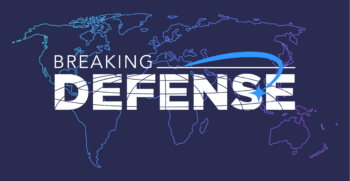
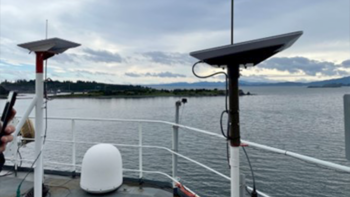

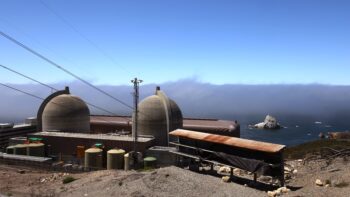
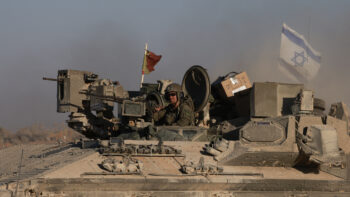
![T2BETA_PROGRAM_REVIEWED1[1]](https://breakingdefense.com/wp-content/uploads/sites/3/2024/08/T2BETA_PROGRAM_REVIEWED11-350x219.jpg)

